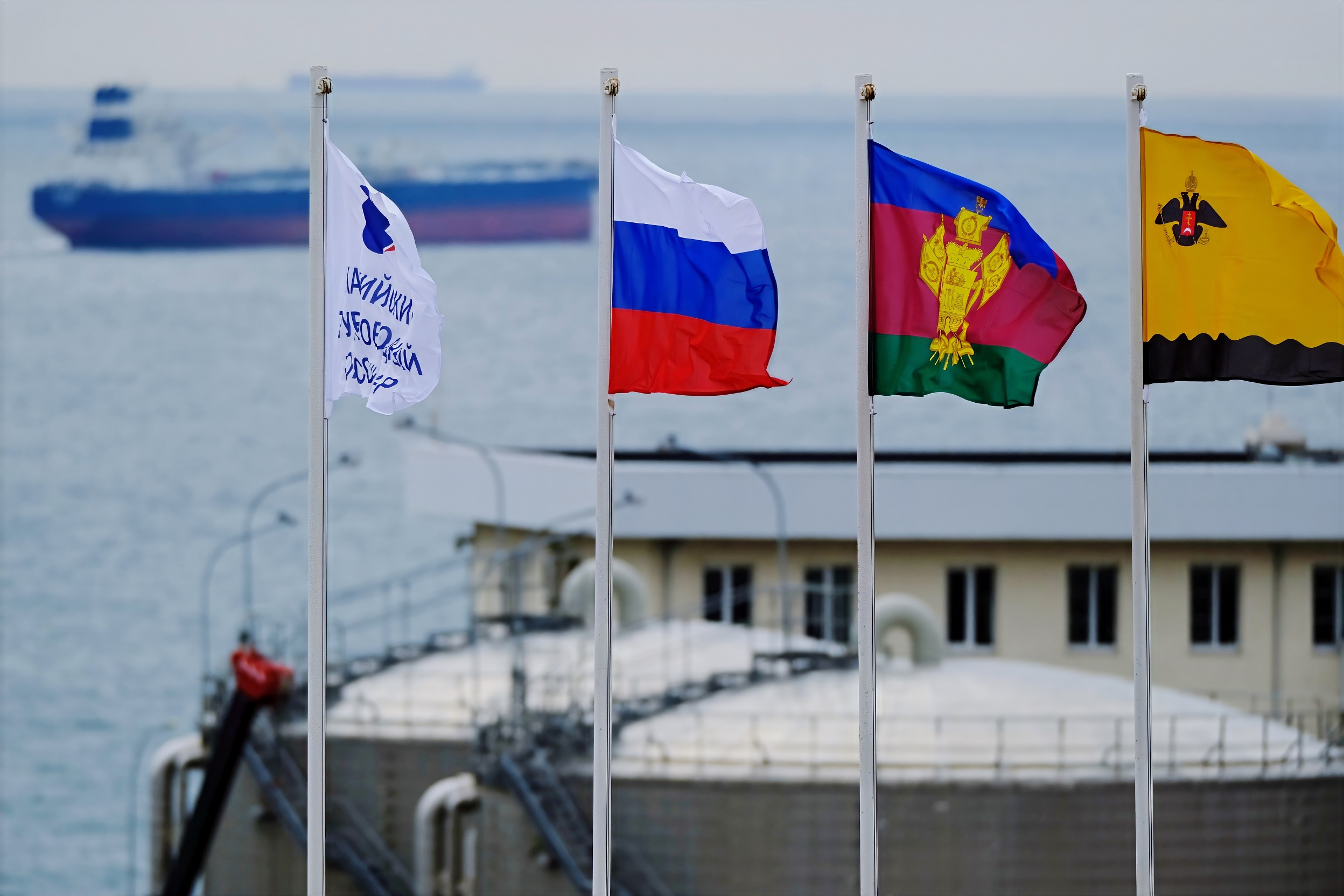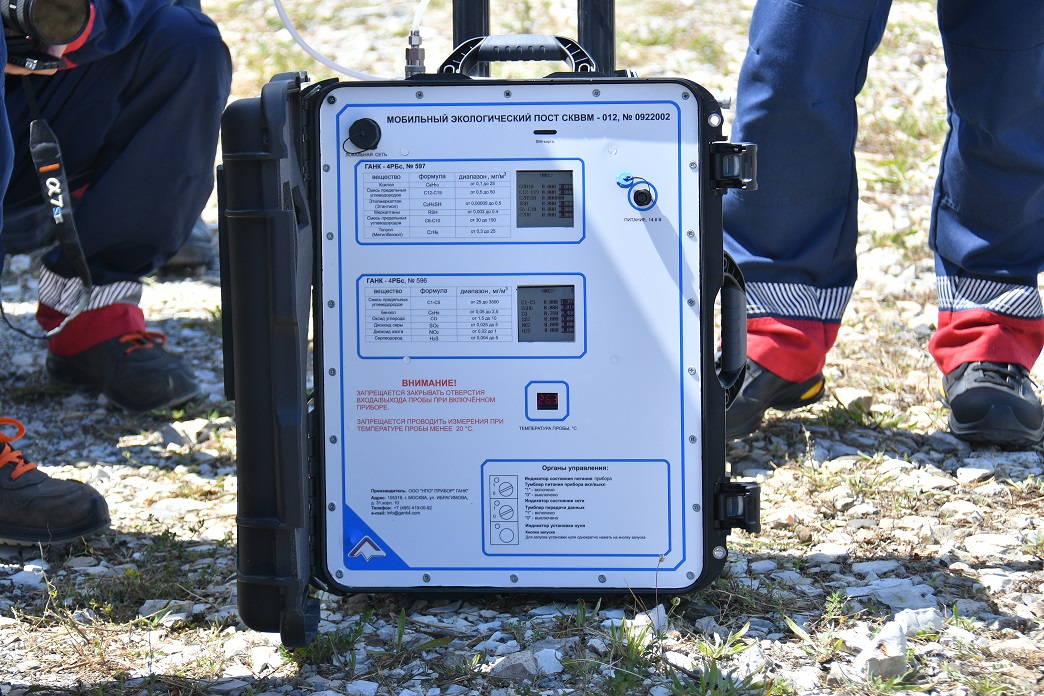 In
the first half of year 2025, the accredited third-party laboratories completed
5,203 studies of industrial emissions, atmospheric air and noise level, and
also 1,072 studies of natural surface and groundwater, wastewater and drinking
water, and bottom sediments at the CPC Marine Terminal as part of the
Environmental Compliance Assurance (ECA) program.
In
the first half of year 2025, the accredited third-party laboratories completed
5,203 studies of industrial emissions, atmospheric air and noise level, and
also 1,072 studies of natural surface and groundwater, wastewater and drinking
water, and bottom sediments at the CPC Marine Terminal as part of the
Environmental Compliance Assurance (ECA) program.The
findings confirmed that the Marine Terminal business activities impact on the
natural environment is within the established regulatory values, and the quality
of atmospheric air in the area of MT operations meets sanitary and hygienic
requirements.
Compared
to other types of hydrocarbon shipment, modern pipeline transport is the most
environmentally friendly, as it significantly reduces the need for transshipment
of the transported product along the entire route from the shipper to the
consignee.
Environmental
safety of operations, environmental protection, sustainable use of natural
resources, conservation of biodiversity of flora and fauna are among the CPC's
priorities in its business processes.
In
order to reduce emissions, class A shut-off valves and certified equipment of
the maximum tightness class are used at the facilities of the main oil
pipeline. The technologically advanced engineering solutions used by the
Company not only help minimizing the release of pollutants into the atmospheric
air, but also allow reducing the carbon footprint of crude oil
transportation. Independent assessment
of greenhouse gas emissions and carbon footprint of the Caspian Pipeline
Consortium's products in the Russian segment of the oil pipeline system in
2022-2023 suggests that their values are relatively low for oil and gas
companies. Article “The Pipeline Carbon Footprint” by the corporate journal CPC
Panorama provides a more detailed report.
https://cpc-online.ru/publication/?SECTION_ID=9&ID=23563
 In
order to monitor and preserve the quality of atmospheric air, Environmental
Compliance Assurance (ECA) is implemented at the CPC facilities using
instrumental and computational methods. Operational monitoring of the
atmospheric air state is provided with the involvement of third-party
accredited laboratories and the use of portable gas analyzers.
In
order to monitor and preserve the quality of atmospheric air, Environmental
Compliance Assurance (ECA) is implemented at the CPC facilities using
instrumental and computational methods. Operational monitoring of the
atmospheric air state is provided with the involvement of third-party
accredited laboratories and the use of portable gas analyzers.
Starting
in April 2023, the Consortium initiated tanker loading rate reduction based on
SPM weather station readings not only when actual adverse weather conditions
set in, but also with southerly winds in the CPC Marine Terminal sea area in
Yuzhnaya Ozereevka. The requirements are included in the Company in-house
regulations, and are taken into account by CPC Contractors and Shippers.
Also
in 2023, the automatic air quality control system Atmosphere, which consists of
one fixed and two mobile posts, was put into service in the CPC Marine Terminal
area. Each of the posts includes two three-channel GANK-4M gas analyzers
(listed in the State Register of Measuring Instruments of the Russian
Federation). A fixed post of the automatic air quality control system is
installed on the limits of the CPC Marine Terminal sanitary protected zone and
residential development zone.
Certified
optical sensors of the gas analyzers in continuous (streaming) mode, as
specified by the federally certified methods, measure the content of pollutants
in atmospheric air such as the saturated hydrocarbons C1-C5, C6-C10, C12-C19,
toluene, benzene, xylene, methyl- and ethyl mercaptans. The measured values
show that there are no exceedances of the maximum permissible concentrations
(MPC) established for these substances. Statistical data from the post is
posted on the Ecoinformer page of the CPC Panorama website.
https://cpc-online.ru/specprojects/ecoinformer/
For information:
The CPC pipeline system is one of the largest
projects in the energy sector in the CIS. Length of the Tengiz–Novorossiysk
Pipeline is 1,511 km. This route transports over two thirds of all Kazakhstan
export crude, as well as crude from Russian oil fields, including those in the
Caspian Region. CPC Marine Terminal is equipped with three Single Point
Moorings (SPMs) that allow to load tankers safely at a significant distance
offshore.
CPC Shareholders: Russian Federation – 24 %, IC
CPC Company (LLC) – 7%, NC KazMunayGas JSC – 19%, Kazakhstan Pipeline Ventures
LLC – 1.75%, Chevron Caspian Pipeline Consortium Company – 15%, Lukoil
International GmbH - 12.5%, Mobil Caspian Pipeline Company– 7.5%, Rosneft-Shell
Caspian Ventures Limited– 7.5%, BG Overseas Holdings Limited– 2%, Eni
International N.A. N.V. S.ar.l. – 2% and Oryx Caspian Pipeline LLC – 1.75%.